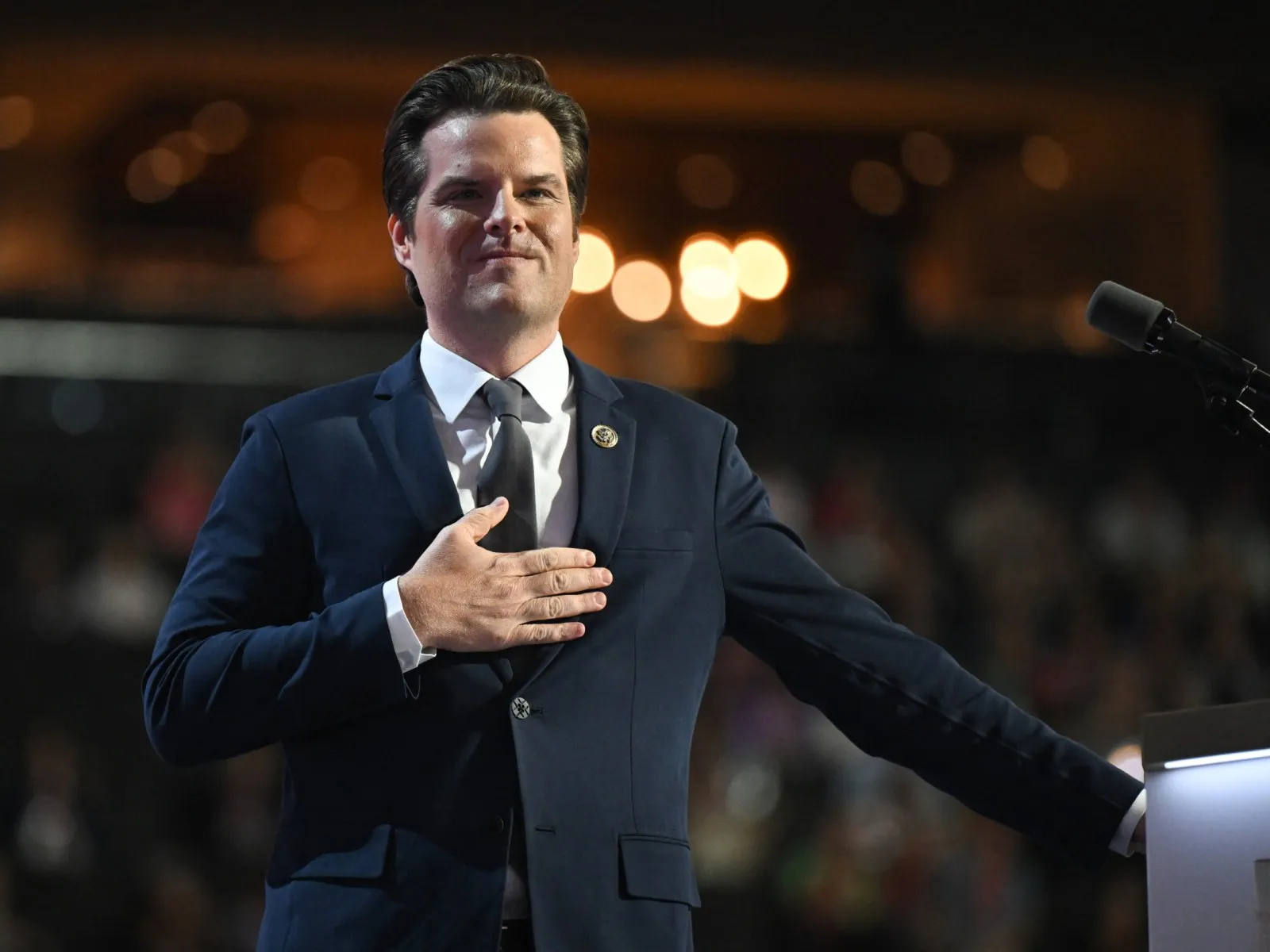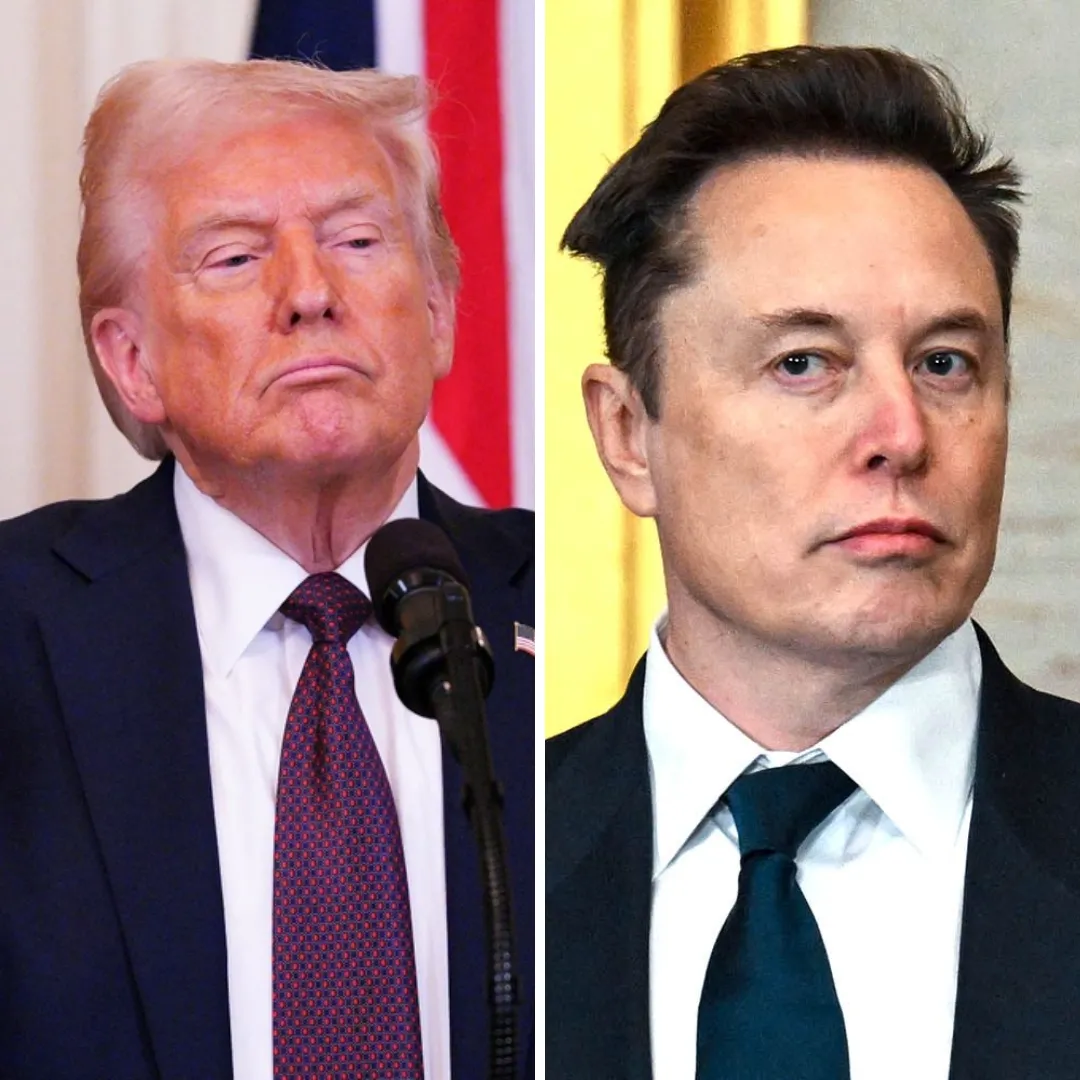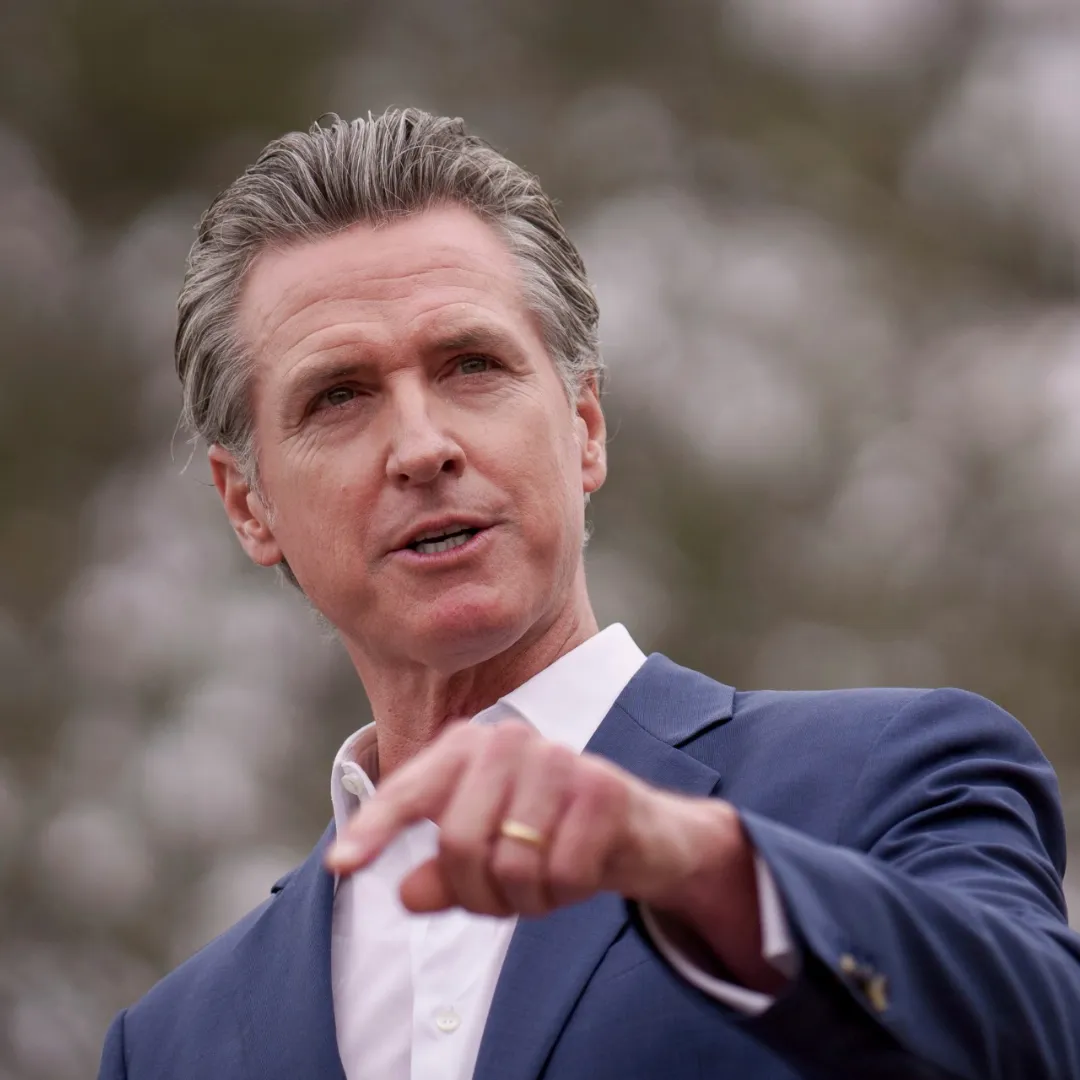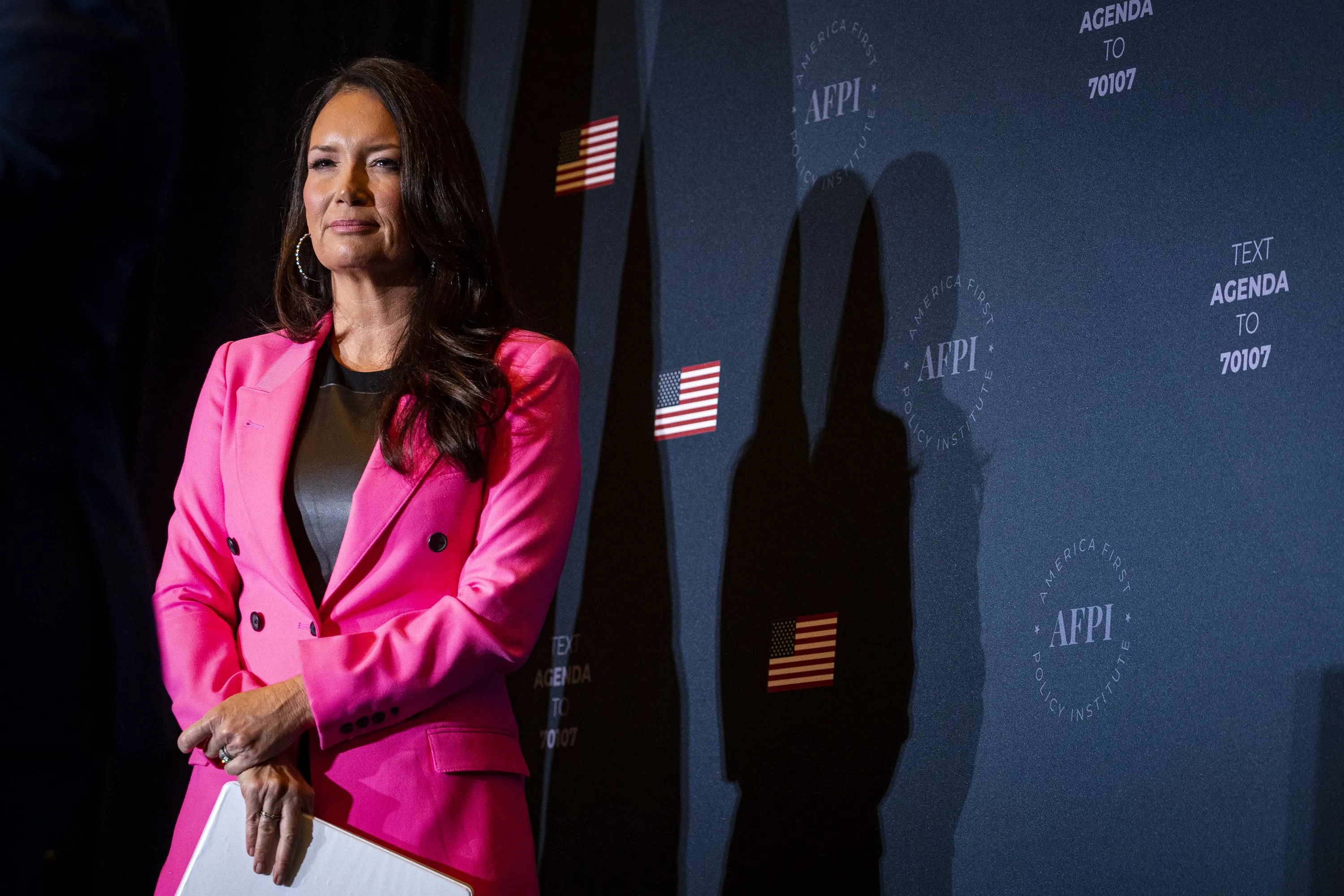
House Minority Leader Hakeem Jeffries is accusing President Donald Trump of intentionally damaging the U.S. economy to benefit wealthy donors, international investors, and the Republican Party’s biggest backers.
In a press briefing on Monday, Jeffries didn’t hold back, saying Trump’s trade policies and recent wave of tariffs are so reckless that they seem designed to spark economic chaos for personal and political gain.
Jeffries pointed to Trump’s latest tariffs, which triggered a major sell-off in the stock market and wiped out over $6 trillion in value across U.S. markets in just two days.
He said the only explanation for this level of financial destruction is that Trump is deliberately creating economic downturns to open up “buying opportunities” for the ultra-wealthy — a phrase Jeffries noted Trump himself has used in the past.
Jeffries said, “The Trump tariffs, which are a tax on the American people, are so reckless, so un-strategic, and so lacking in sophistication that the only conclusion one can draw is that Donald Trump and the Republicans are intentionally tanking the economy.”
He added that Trump has said in the past that “the rich get richer during tough economic times,” and questioned whether this was the plan all along.
Over the last several weeks, Trump has been doubling down on aggressive tariffs targeting multiple countries — both allies and adversaries. These new trade penalties have sent shockwaves through global markets, sparked panic among investors, and caused major losses on Wall Street.
The sweeping tariffs came with little warning and even less coordination, and the result was an immediate drop in investor confidence and fears of a global recession.
Despite the negative impact, Trump has defended his approach, claiming that the current economic slump is temporary and that the tariffs will lead to long-term gains by pushing investment back into the United States.
On his social media platform, Truth Social, Trump told followers that “this is a great time to get rich, richer than ever before!!!” and said foreign investors are “investing massive amounts of money” in the U.S. because of his policies.
That statement did not sit well with critics, especially Democrats like Jeffries, who say Trump’s economic agenda was supposed to help working-class Americans, not international billionaires. Jeffries said the campaign promise was to bring down costs for everyday families, not to crash the economy so the rich could buy low and profit.

“There’s no rational explanation for any of this — except perhaps that there’s some scheme that Donald Trump has publicly eluded to, which is that the rich get richer when the economy collapses because there are buying opportunities,” Jeffries said.
“There’s no rational basis otherwise to explain the economic carnage that Donald Trump is visiting on the American people.”
Jeffries made it clear that he is not against tariffs in general. In fact, he said that when used properly, tariffs can help protect American industries and workers. But, in his view, that’s not what’s happening here.
“This is a reckless economic sledgehammer that Donald Trump and compliant Republicans in the Congress are taking to the economy,” he said. “And the American people are being hurt.”
The political response to Trump’s tariff strategy has been mixed, even among Republicans. Some GOP lawmakers have urged him to slow down or reconsider his trade actions, arguing that widespread tariffs can harm U.S. farmers, small businesses, and consumers.
But Trump has remained firm, continuing to portray tariffs as a winning strategy that puts America first, even if the short-term pain is high.
Jeffries isn’t buying that explanation. He believes the real reason for the chaos is to benefit a small group of wealthy investors who thrive during economic downturns. “This isn’t about helping the middle class,” Jeffries said. “It’s about helping Trump’s friends.”
The House Democratic leader also warned that if his party retakes the House majority in the next election, they will move quickly to roll back any tariffs that are doing financial harm to American families and businesses. He said Democrats will use “every single legislative tool” at their disposal to undo the damage and restore economic stability.
Trump, on the other hand, has said that the recent dip in the market is part of a necessary process and that it creates great opportunities for those who are ready to invest. “My policies will never change,” he said in a weekend post. “This is a great time to get rich.”
That message, critics say, shows just how out of touch the former president is with everyday Americans who are struggling with inflation, higher prices, and job insecurity. Instead of working to bring costs down or build economic security, they argue that Trump is encouraging a system where financial crashes benefit the elite — while regular people suffer.
Trump’s belief in tariffs as a tool to rebalance trade has been a major part of his political identity since 2016. He has often accused countries like China and members of the European Union of cheating the United States with unfair trade deals.

While many agree that trade policy needed reform, the way Trump has implemented his tariffs — without clear goals or coordination — has worried economists and business leaders alike.
Experts say that uncertainty in trade policy leads to hesitation in investment and instability in the markets. That’s exactly what happened after Trump’s latest round of tariffs. Businesses across industries, from tech to agriculture, have reported serious disruptions, and global companies are reconsidering where they do business.
Yet Trump continues to insist that his moves are working. He points to a growing interest in American assets and an increase in foreign investments. However, financial analysts note that what Trump calls investment could just be bargain hunting by wealthy elites taking advantage of plummeting prices.
Jeffries also noted the irony in Trump’s message. While everyday Americans are watching their retirement accounts drop and struggling to pay more for groceries, gas, and basic needs, Trump is telling the rich that now is their chance to get even richer. “That tells you everything you need to know about where his priorities are,” Jeffries said.
The debate over tariffs isn’t just about economics — it’s also becoming a central issue in the 2026 midterms. Democrats are already signaling that they will frame Trump’s economic approach as one that favors the rich and punishes the working class.
Jeffries and others plan to campaign on this message hard, especially in swing states where rising prices and job uncertainty are top concerns.
Meanwhile, Republicans remain divided. Some support Trump’s boldness, calling him a necessary disruptor in a broken system. Others worry that he’s going too far, risking a full-blown recession just to make a point — or worse, to help his financial allies.
For now, the tariffs remain in place, the market remains shaky, and the political rhetoric is only heating up. Whether Trump’s strategy will pay off, or backfire, will depend on how voters respond to the economic pain they’re feeling — and who they blame for it.




